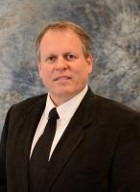
Taiwan Semiconductor Manufacturing Co (TSMC, 台積電) is in early talks with the German government about potentially establishing a plant in the country, according to a senior executive.
Various factors, including government subsidies, customer demand and the talent pool, would influence its final decision, TSMC senior vice president of Europe and Asia sales Lora Ho (何麗梅) told reporters on the sidelines of a technology forum in Taipei.
The discussions come as the EU and others seek to increase domestic chip production to mitigate the risk of supply chain disruptions.
The chipmaker has not discussed incentives with Berlin or decided on a location, Ho said.
TSMC chairman Mark Liu (劉德音) in June told shareholders that the Hsinchu-based company had begun assessments on setting up manufacturing operations in the European country.
The world’s largest contract chipmaker, which mostly produces domestically, has started to diversify over the past year to help meet demand in various major countries seeking to bolster domestic semiconductor production out of national security and self-sufficiency concerns.
It is building a US$12 billion facility in Arizona and is set to soon start construction of a US$7 billion plant in Japan.
Meanwhile, the EU said it would unveil the “European Chips Act” in the first half of next year as part of its strategy to boost semiconductor production.
One of the goals would be to account for 20 percent of global production by 2030, the bloc said.
Source: Taipei Times; Bloomberg and Reuters Read The Article
PSR Analysis: Continuing a theme that has been developing since early 2020, supply chain frailties and sourcing shortfalls are driving plans for localized production facilities across the globe. Semiconductors are at the center of the discussion. The causes of the current shortage in the automotive industry, ranging from natural and man-made disasters to channel diversions and everything in between, have made it clear that local production is not only beneficial, but also essential, as new technologies continue to take root and grow in the world markets.
Port congestion, labor shortages, power outages and political conflicts are impacting the movement of goods and materials. Regional semiconductor production facilities like TSMC’s Europe facility being discussed will take time to build and will still face many of the same challenges which exist in current locations: raw material acquisition, skilled labor hiring, environmental certification, domestic transportation bottlenecks and water resource management.
Despite these challenges, the benefits of a diversified supply chain for these key components will offer greater opportunity for the long-term implementation of technologies need to expand alternative energy vehicles, autonomous drive capabilities and myriad other factors which will be required for smart cities of the future.
Moreover, from the Life Cycle Assessment (LCA) perspective, the chance exists to reduce some of the carbon footprint associated with semiconductor production, and possible develop meaningful recycling plans that can be managed regionally, whether in Europe or in other areas. PSR
Erik Martin is Director, Asia Region, for Power Systems Research


